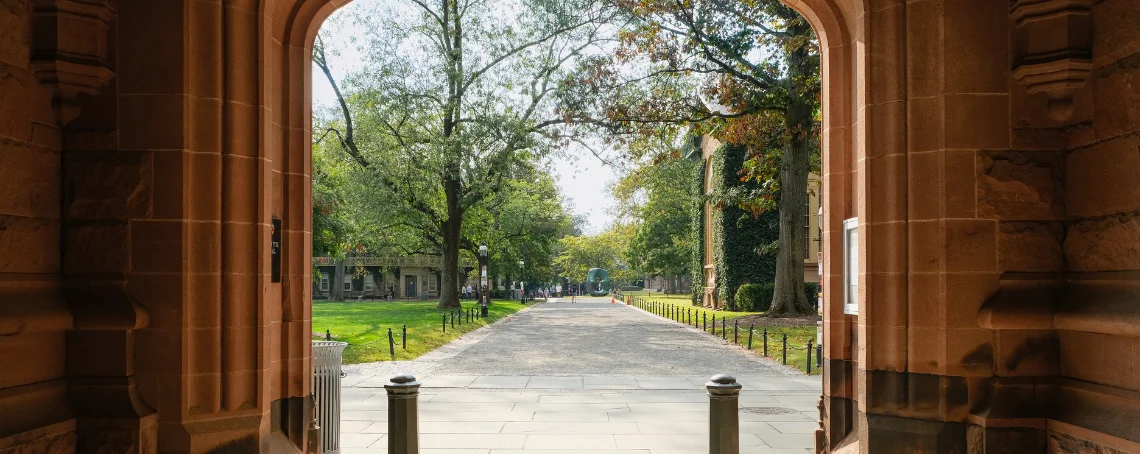There are two prominent contenders for advanced courses in high school education: the International Baccalaureate (IB) program and the Advanced Placement (AP) program. Both offer rigorous curricula designed to challenge students and prepare them for college-level coursework. However, the differences between the two can be significant, leading to varied experiences and outcomes for students. In this blog post, we’ll delve into a comparison of IB vs. AP programs to help students and parents make informed decisions about which path to pursue.
What Are IB Classes?
IB (International Baccalaureate) classes are part of a rigorous two-year academic program focused on holistic education, global awareness, and critical thinking.
Sarah, Marketing and Administrative Coordinator at Zinkerz, says that many students who take IB curriculum take AP courses as well. What are the benefits? Hear it from her.
In order to be awarded an IB Diploma (and potential college credits), you must
- Complete a course in each of the following subject groups, including passing their IB Final Exams and
- omplete the Diploma Programme (DP) core.
The six subject groups are:
- Art
- Individuals and Societies
- Language and Literature
- Language Acquisition
- Mathematics
- Sciences
You may pick either High Level (HL) or Standard Level (SL) courses. Most schools restrict the number of HL courses to 3 or 4 per student and require the rest of the courses to be SL.
The DP core is:
- Theory of Knowledge (TOK): A course that explores how we know what we know
- Extended Essay (EE): A 4,000-word independent research paper
- Creativity, Activity, Service (CAS): Requirements that encourage students to engage in creative pursuits, physical activities, and community service
If you take all six classes, pass your final IB exams in those classes, and complete the other three components of TOK, the EE, and CAS, you will be awarded an IB diploma, which can count for up to a year of college credit.
What Are AP Courses?
AP (Advanced Placement) courses are modeled after college-level courses but designed for and offered to high school students. Most AP courses are taught over a full academic year and culminate with a standardized exam.
In contrast to the IB curriculum model, you can enroll in AP courses independently of one another. High school students can take one AP course or multiple AP courses throughout high school, with some students beginning AP courses as early as 9th grade.
AP courses are available in a variety of subjects, from traditional academic areas like AP Biology and AP Literature to more specialized fields like AP Computer Science and AP Art History.
At the end of each AP course, you can take its respective AP exam, which is scored on a scale of 1 to 5. Many colleges and universities offer course credit or advanced placement to students who earn high scores on these exams.
IB or AP: A Comparison
Below is a comprehensive comparison:
| Category | IB (International Baccalaureate) | AP (Advanced Placement) |
| Curriculum & Structure | Comprehensive 2-year program (IB Diploma); requires courses in 6 subject groups + core elements (TOK, EE, CAS) | Individual courses; no fixed program structure; students choose à la carte |
| Assessment & Evaluation | Internal + external assessments; includes essays, projects, and exams | High School dependent on how they award course grades; however, most colleges focus on the standardized final exam per course |
| Flexibility & Course Selection | Less flexible; students must meet diploma requirements across disciplines and stick to the same courses over 2 years | Highly flexible; students can take one or multiple AP classes of their choosing in a given year. Since each course is a year long, students can take multiple APs throughout high school. |
| Recognition & Acceptance | Recognized globally; highly respected by universities worldwide | Recognized mostly in the U.S. and Canada; many universities offer college credit for scores of 3+ |
| College Credit Opportunities | May receive college credit or advanced standing, school dependent | Widely accepted for college credit in U.S. (typically for scores of 3+) |
Which Is Better, IB or AP? Do Colleges Prefer IB or AP?
Sarah explains that when comparing difficulty, “IB is generally considered more demanding overall due to its structured diploma requirements, interdisciplinary core components (TOK, EE, CAS), and sustained workload,” while “AP is more flexible but can be equally challenging depending on the number and type of courses a student takes.”
Most U.S. colleges value both equally for their rigor and college prep. Top-tier schools like Harvard, Stanford, and the Ivy League schools do not favor one over the other as long as students are maximizing their schools’ offerings. At the end of the day, colleges assess whether you took the most challenging courses available to you. Admission officers look at the academic choices relative to what your high school offers, not in comparison to students from schools with different program offerings.
Is IB or AP Better for Me?
The most important thing to consider is to academically challenge yourself with the opportunities available to you. Here’s what we advise Zinkerz’s students:
It is important to consider what opportunities you have to take the courses, as not all schools offer both curricula.
- If your school offers both, consider if you can manage both, or whether your learning strengths are more suitable for one versus the other.
- If your school does offer IB, but not AP, consider whether you can successfully take AP classes on top of your IB coursework using outside College Board approved classes.
- If your school offers APs, but not the IB curriculum, it may be better to consider AP courses, as IB is hard to access outside of school offerings.
- If your school does not offer either, it may be better to consider APs, as they are more accessible than IB for outside-of-school offerings.
To reiterate, colleges will not penalize you for not having the courses offered at your school. Make the best choice for your learning style and interests that balances academically challenging yourself and finding success in each course.
As you navigate the decision for which classes to take, keep the following in mind:
- Try to choose a program that challenges you
- Allow yourself time and space to thrive academically and personally.
Whether you choose IB courses, AP courses, or an alternative path, what matters most is your commitment to learning and growth.
Alternatives to IB and AP
What if your school doesn’t offer the IB or AP courses you want to take? Don’t worry. Colleges never underestimate students because they didn’t take courses that their school doesn’t offer. It’s a good strategy to take the most rigorous options available. Below is a short list of alternatives you can choose from:
- Honors courses: Advanced versions of standard high school classes
- Dual enrollment: Taking college courses while still in high school
- Community college courses: College-level courses taken at local community colleges
- Independent study: Working with teachers on advanced projects in subjects of interest
- Online AP courses: College Board-approved online AP courses for self-motivated students
Note: The key is to challenge yourself academically within the opportunities available to you.
Why Turn to Zinkerz for College Prep Help
Regardless of whether you choose the IB or AP program, Zinkerz can be a valuable resource to support your academic journey. Our experts offer personalized tutoring and exam preparation services to help you excel in your coursework and prepare for any standardized test. With experienced tutors and comprehensive study materials, you can get the extra guidance and support you need to succeed.
Ready to start your journey? Book a consultation today.



